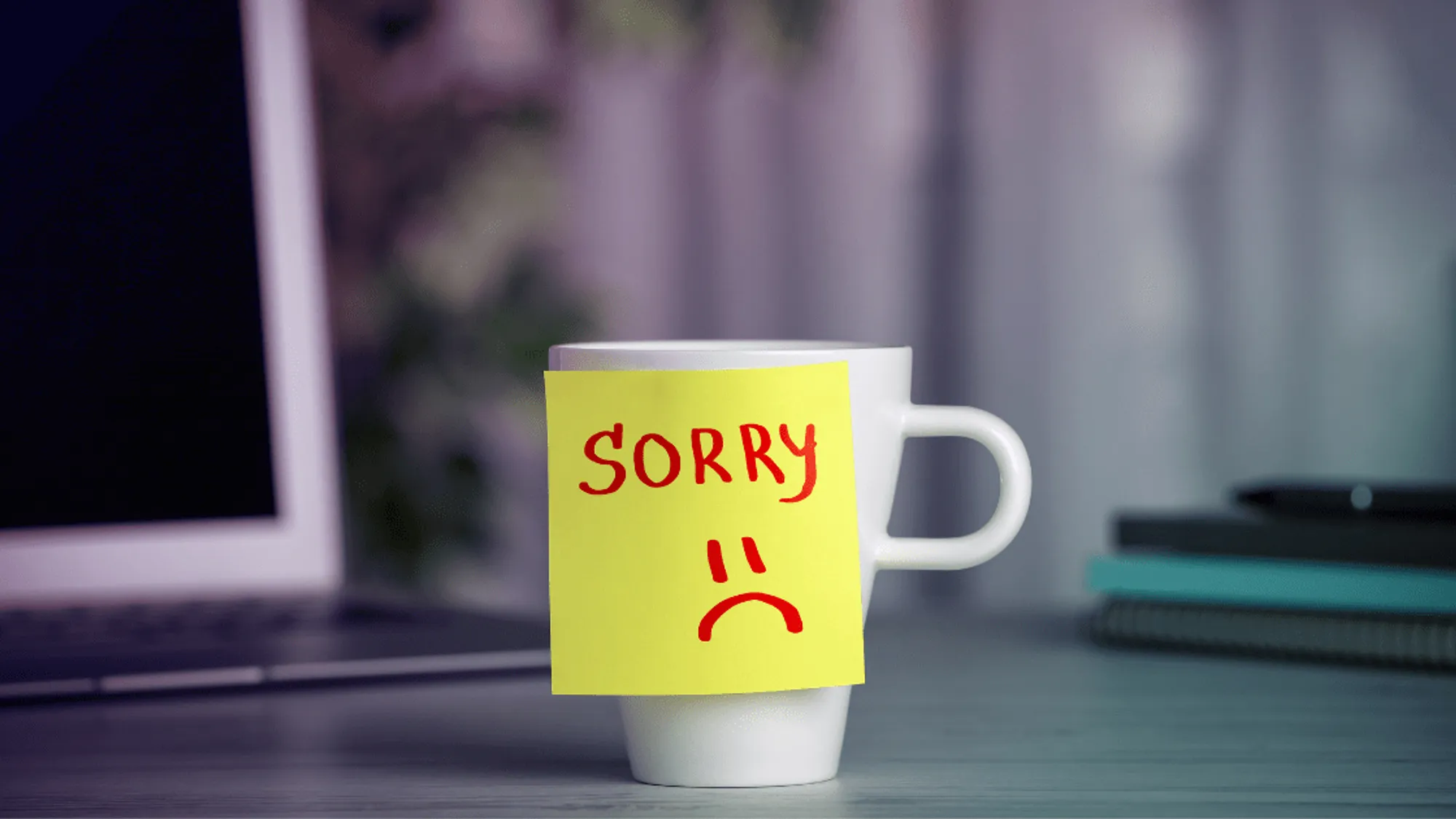The Apology
It’s inevitable. We aren’t perfect; we make mistakes, forget things, and sometimes lose our tempers. And when that happens, it’s easy to dive deep into the abyss of regret, guilt, blaming, and justification.
Who is at fault isn’t as important as recognizing your part in the situation. If you forgot an appointment or didn’t show up for a client meeting, blaming others doesn’t work. “He should have reminded me.” “She was supposed to send a text to confirm.” “It disappeared from my online calendar.” Nope. The onus is on you, plain and simple.
In more complex situations, it can sometimes be challenging to pinpoint the cause of an error or oversight. It happened, and you can’t change that. Identifying and blaming whoever messed up isn’t as immediately necessary as switching into damage control mode.
Losing your temper, despite your – ahem – regular mindfulness and meditation practices, is not good. Yelling at a colleague, being sarcastic to a supplier over a late delivery, or berating an employee are all behaviours that make a circumstance worse, not better.
In all these scenarios, take ownership of the situation and work to resolve it. Regardless of who made the mistake, your company’s reputation is on the line. Blasting an employee or colleague in the heat of the moment doesn’t solve anything. Use your leadership skills by looking for solutions and minimizing the impact. There’s time later for a serious discussion, giving you a chance to review whether that team member has adequate training, was given enough information, or if there was a communication breakdown. The key is to move on and implement changes to minimize the chances of a repeat incident.
Being late for meetings or completely overlooking one gives the impression you don’t respect others’ time and that your busy day is reason enough to inconvenience them. It’s not. We all have the same number of 24 hours, so implement calendar alerts, organize your work, be prepared, and avoid no-shows and last-minute cancellations that send a negative message about you.
An apology doesn’t need to be long and drawn out. Many are ruined by the addition of justification and thin attempts to place the blame elsewhere. “I’m sorry I yelled, but I’ve asked you repeatedly to give me your updates before Friday.” “I’d like to apologize if anything I said hurt your feelings – it wasn’t my intention to get so mad.” “I’ve been told you’re upset I needed to raise my voice in the meeting, and you felt singled out. Sorry you felt that way.” None of these rings with any sincerity, nor will they go far to repair the damage that happens when you lose your temper.
The most effective apology doesn’t come with buffers and justification. “I’m sorry I lost my temper / missed our meeting / blamed you in front of others. It was unprofessional and not how I should have responded. I apologize.” Avoid adding anything else to make yourself look good. (I was pushed past my limits / my patience had run out / I was tired of excuses.) Those reflect a lack of control on your part and do little to regain trust and build a healthier working environment.
“Never ruin an apology with an excuse.” – Benjamin Franklin

